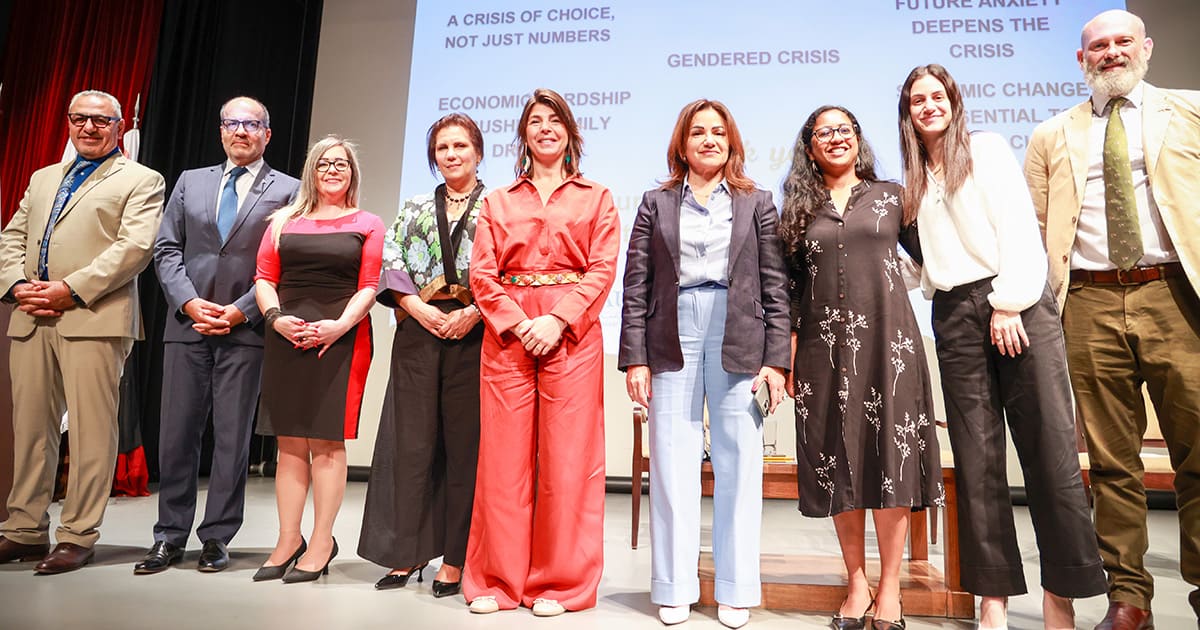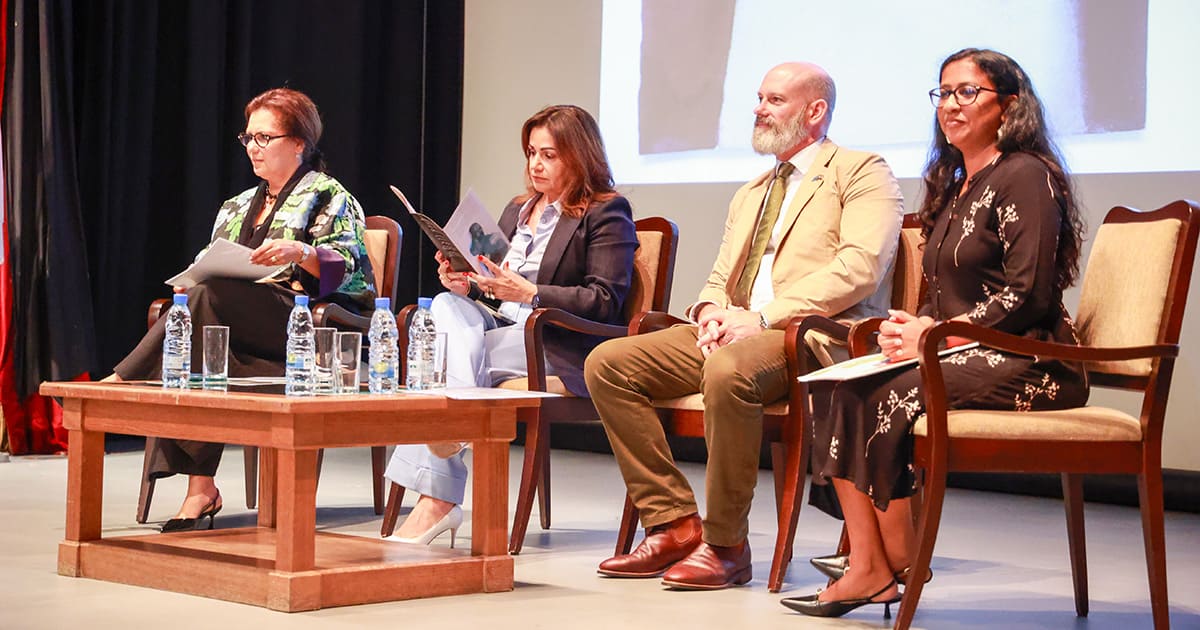“Choice, Not Chance:” A Deep Dive into the Real Fertility Crisis
The State of World Population Report by the UN Population Fund (UNFPA) launches its flagship 2025 report at LAU, shedding light on the problems that inform fertility decisions in Lebanon and the region.
In recent years, a concerning decline in birth rates worldwide has prompted researchers to explore the medical factors contributing to this trend. However, a broader research approach, compiled in the UN Population Fund’s (UNFPA) State of the World Population Report 2025 (SWOP), has revealed that underlying economic, social, and political hurdles also play a significant role in influencing fertility decisions.
The report was launched regionally at LAU in an event titled Choice, Not Chance, organized by the Arab Institute for Women (AiW) in collaboration with UNFPA Lebanon and UNFPA Arab States on World Population Day, July 11, at the Beirut campus.
Attendees included the Minister of Social Affairs in Lebanon Haneen Sayed, UNFPA Regional Director for Arab States Laila Baker, World Food Programme Representative and Country Director for Lebanon Matthew Hollingworth, and UNFPA Representative in Lebanon Anandita Philipose, as well as young advocates, students, faculty and staff.
The event featured panel discussions that delved into the data collected, sparking timely conversations with policymakers, medical experts, and activists. Panelists underlined the core message of the UNFPA report within their areas of expertise: The crisis is not about low fertility rates, but rather the limitation of choice for young people.
As both Hollingworth and Philipose pointed out in their opening remarks, the report shows that one in five people worldwide are having fewer children than they desire, and in the Arab World, the pressure is at an all-time high. Arab youth unemployment is estimated at around 25.2 percent, and a staggering 37.7 percent for young women. One in 10 Arab women lack access to family planning, with the figure rising dramatically to one in five in some Arab countries.
Minister Sayed, who formally launched the report, noted that its findings resonate with Lebanese national challenges and affirmed the government’s commitment—alongside national and international partners—to providing social assistance through the Aman Program that offers monthly monetary assistance to families in need, social welfare services, and economic inclusion.
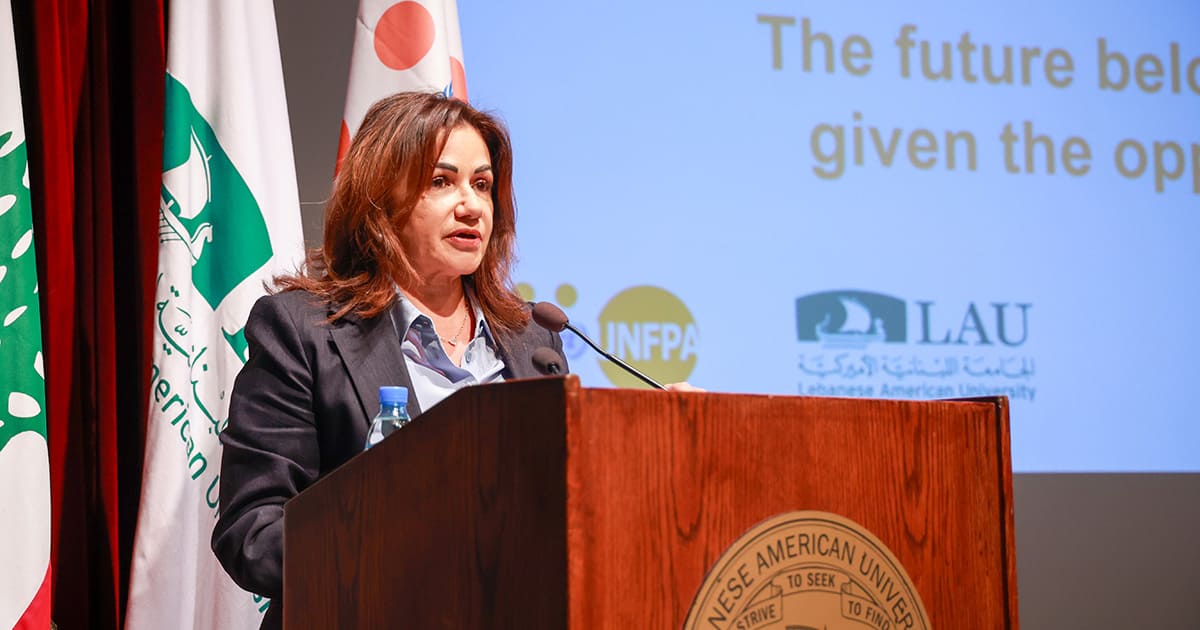
Recognizing the toll of recent hardships on Lebanese youth, Sayed said that “while the decision to start a family is deeply personal, we must remind ourselves that children bring more than financial cost—they bring meaning, legacy, and joy. Let us build together a Lebanon in which choosing to start a family is not a leap of faith but a confident step toward a future that we can shape together.”
Baker framed the region’s fertility decline as “a crisis of constrained dreams and options rather than mere demographics.” She shared testimonials from young Arabs who voiced concerns about financial insecurity, lack of affordable housing options and social stigma, especially as young men are expected to be the sole breadwinners for their families.
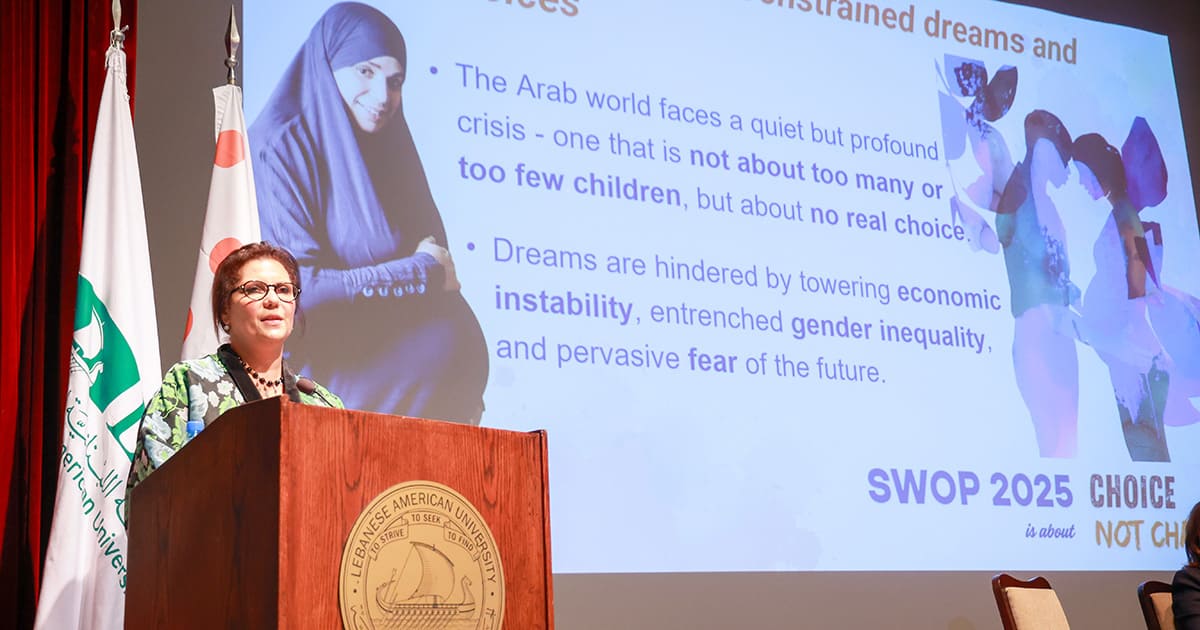
“Across generations, family has been our anchor,” said Baker, “but today, young people face barriers our grandparents never imagined.”
AiW Executive Director Myriam Sfeir moderated a panel titled Inter-generational Dialogue on Reproductive Agency Through the Ages, featuring President of the World Association for Reproductive Health and Clinical Associate & Director of the Women Integrated Sexual Health Program at the American University of Beirut Faysal El Kak, ABAAD Founder and Director Ghida Anani and LAU psychology alumna and youth advocate Nour Waizani (BA ’25).
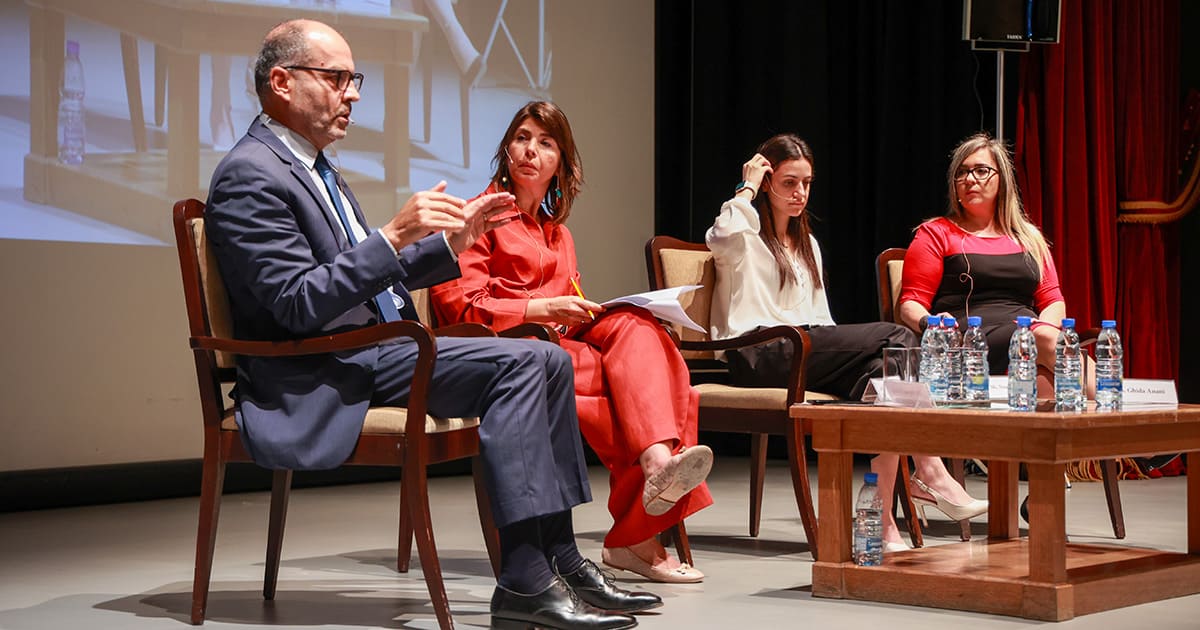
The panelists discussed the social norms, stigma and limitations imposed on personal liberties that directly influence family planning decisions. They underscored the importance of sexual education programs and access to maternal health clinics and women’s resources.
Looking to the future, the report findings point to four pillars for taking action: Economic security through job creation and affordable housing; gender equality, through parental leave and shared caregiving; universal reproductive healthcare, by providing maternal health and sexual education as well as fertility treatments and family planning; and, last but not least, dismantling harmful social norms, such as rigid gender roles and workplace stigma.
